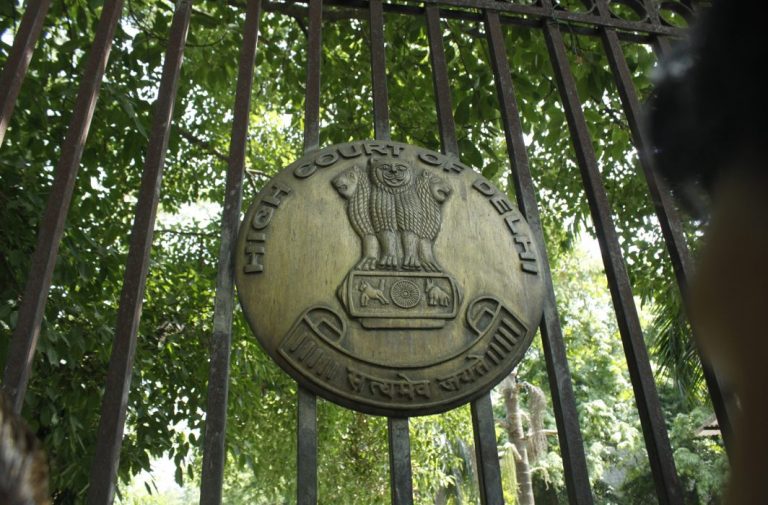
Delhi HC bench led by the Chief Justice Rajender Menon & Justice Brijesh Sethi has Issued Notice on a Plea Seeking directions to Jail Authorities for making necessary arrangements to provide Conjugal Visitation Rights to the prisoners lodged in Jails.
Court observed that “it’s a very interesting matter and petitioner has done a lot of research and it can be done only through Lawyer practicing especially criminal law”.
The counsel for Delhi Government suggested that the plea of the petitioner can be treated as representation. But the court refused to accept the suggestion of Delhi Govt. and opined, let us see how it is to be worked.
Petitioner also contended for setting aside the Rule 608 of Delhi Prision Rule, 2018 which provides “Interview to take place in the presence of a Prisoin Officer” particularly in situation when prisoner is meeting his/her spouse/lawful partner and to clarify other ancillary rules and also seeking further directions to this effect.
“CONJUGAL VISIT”
A Conjugal visit, which may also be referred to as ‘Private Family Visiting’, is a visit wherein a jail inmate gets to spend time in private with a visitor, usually a legal partner/ spouse, and may engage sexually.
The petitioner mentioned this matter on Thursday before the bench headed by the Chief Justice Rajender Menon and Justice Brijesh Sethi and sought urgent hearing of the petition, the court accepted the mentioning and directed the registry to list the matter today on 31.05.2019. The Petitioner primarily contends that the said provision obstructs the proper and fair conjugal visitation rights. The Petitioner supported his contention with the data that around 8000 prisoners are in the age group of 21 to 30 years and among those who are married, meeting their spouse in front of prison officer which severely violate conjugal right and privacy.
Petitioner referred to ‘The United Nation Standard Minimum Rules for the Treatment of Prisoners’ adopted by UN General Assembly in December 2015 wherein the Rule 58(2) states “where conjugal visits are allowed, this right shall be applied without discrimination, and women prisoners shall be able to exercise this right on an equal basis with men. Procedures shall be in place and premise shall be made available to ensure fair and equal access with due regard to safety and dignity”. India being a signatory to the rule is bound to apply the content of the rules in true spirit. He further supported his argument through the case K.S. Puttaswamy (2017) wherein the right to privacy has been considered as Fundamental Right.
The Petitioner wrote a representation to the Jail authorities and Delhi Government to make necessary arrangement to provide conjugal visitation right in privacy to the prisoners lodged in jails. But, he is yet to hear from the authorities.
The Petitioner also put his reliance on research paper published in ‘International Journal of pure and Applied Mathematics’ recognizes the key issues face by detainees and their spouses. The article stresses on how not allowing conjugal visit is against human rights of the prisoners and promotes unnatural sex inside prison beside inflicting punishment on the spouse of the inmate who is also indirectly denied conjugal rights.
The apex court in a case titled Sunil Batra Vs. Delhi Administration (1978) has held that, “convicts are not by mere reason of the conviction denuded of all the Fundamental rights which they otherwise possess.” And directed the government to put in place a Jail reforms committee for the purpose of formulating a scheme for creation of an environment for conjugal and family visits for jail inmates and shall identify the categories of inmates entitled of such visit. Further, the Punjab and Haryana High Court adopted a progressive approach in ‘Jasvir Singh & Anr Vs State of Punjab’ when it held that “the right to procreation survive incarceration”. Such a right is traceable and squarely falls within the ambit of Article 21 of our Constitution read with Universal Declaration of Human Right.
The petitioner further relied upon a judgement on PIL by the Bombay High Court wherein the Court directed the Maharashtra government to examine the possibility of allowing jail inmates to engage sexually with their wives in privacy within the jail premise. A Bench of Justice PB Majumdar and Justice RG Ketkar asked the government to explore a scheme to allow inmates conjugal visits with their partners as a step to curb AIDS menace in prison.
The Matter now would be heard on 2 August 2019.
-India Legal Bureau
#DelhiHC bench led by the Chief Justice Rajender Menon & Justice Brijesh Sethi has Issued Notice on a Plea Seeking directions to Jail Authorities for making necessary arrangements to provide Conjugal Visitation Rights to the prisoners lodged in Jails. NDOH 2 Aug
— India Legal (@indialegalmedia) May 31, 2019

